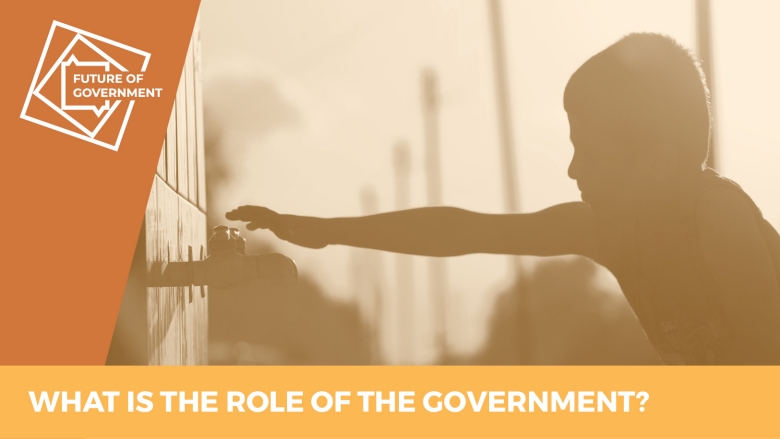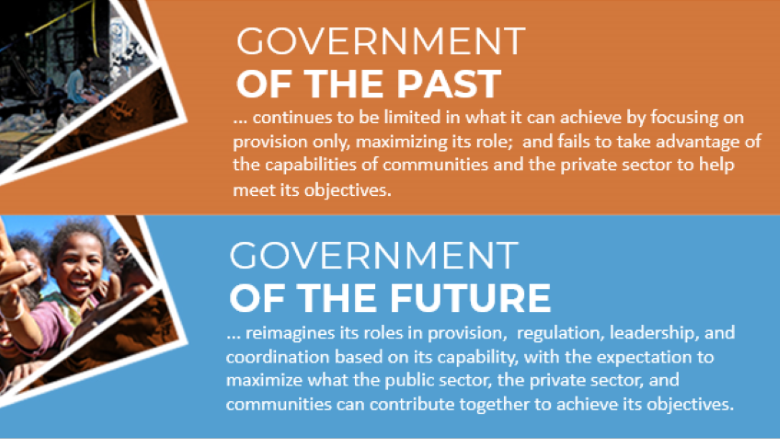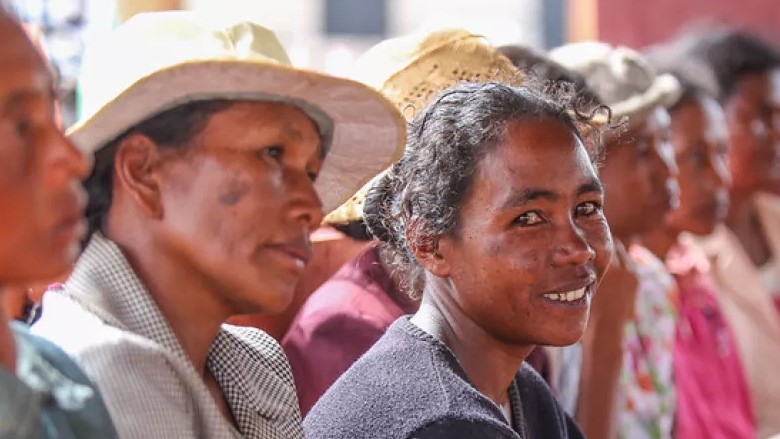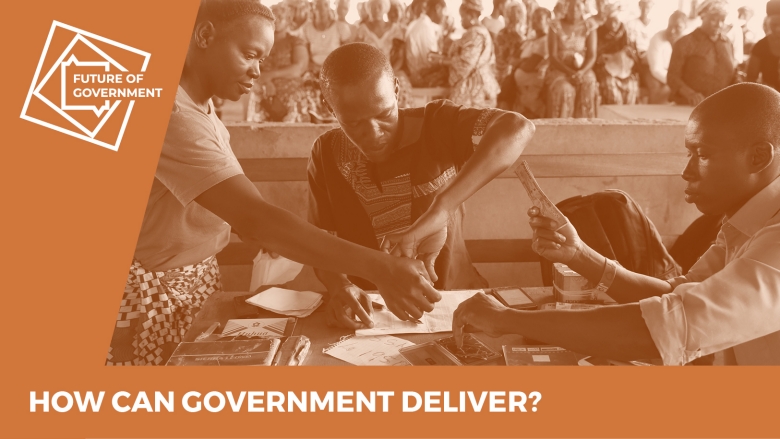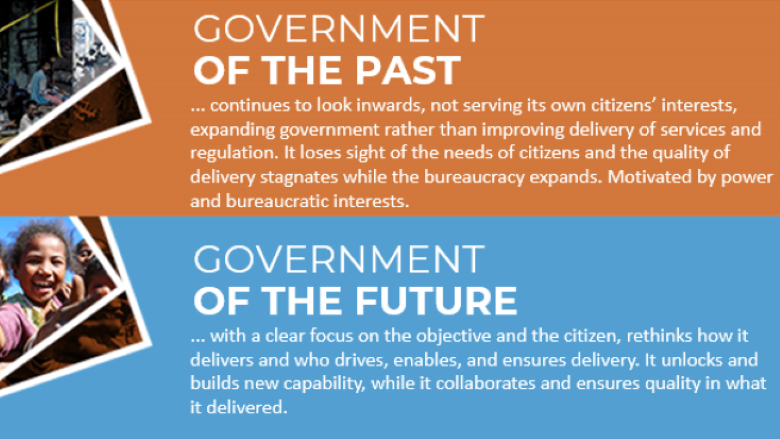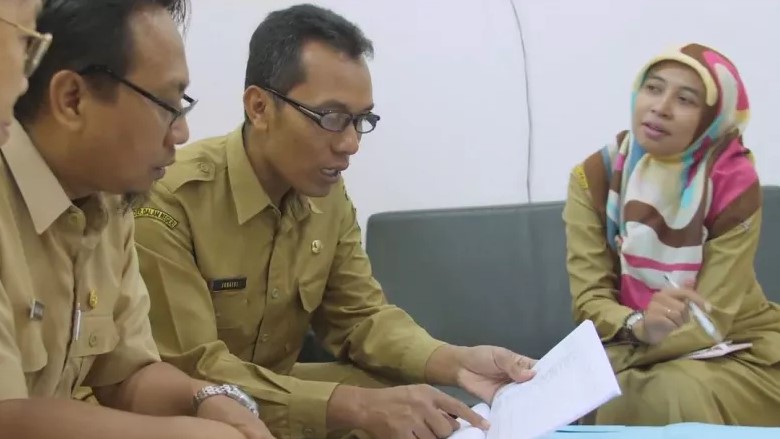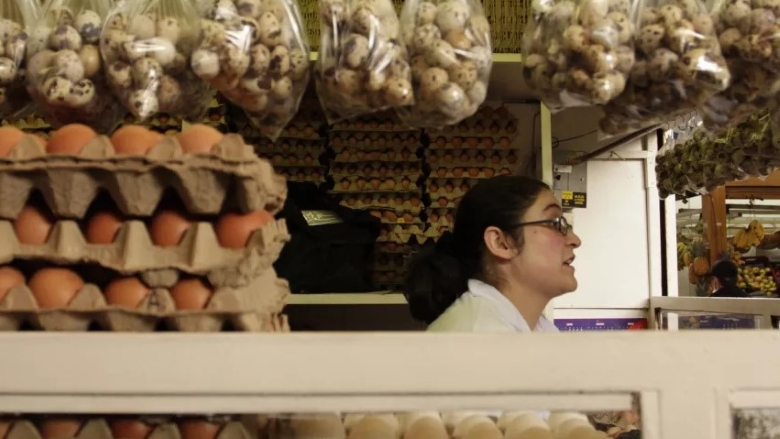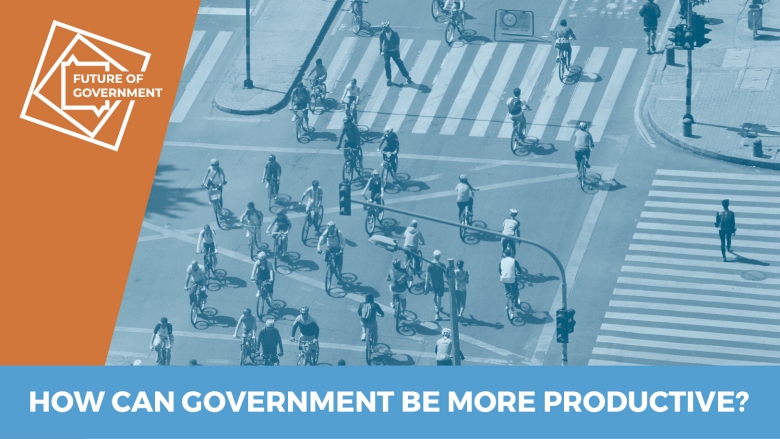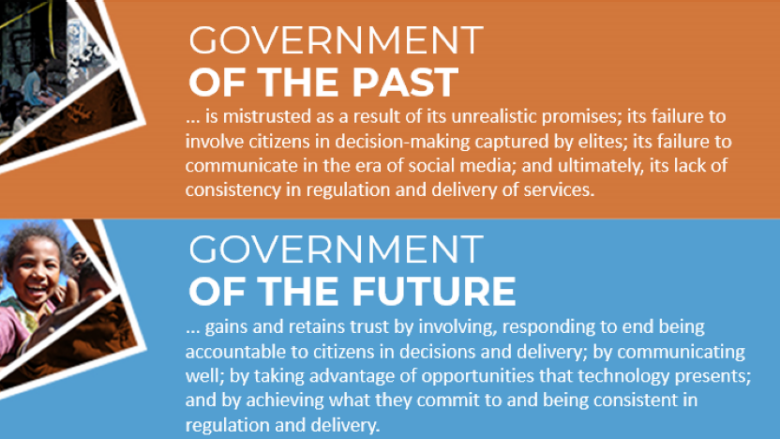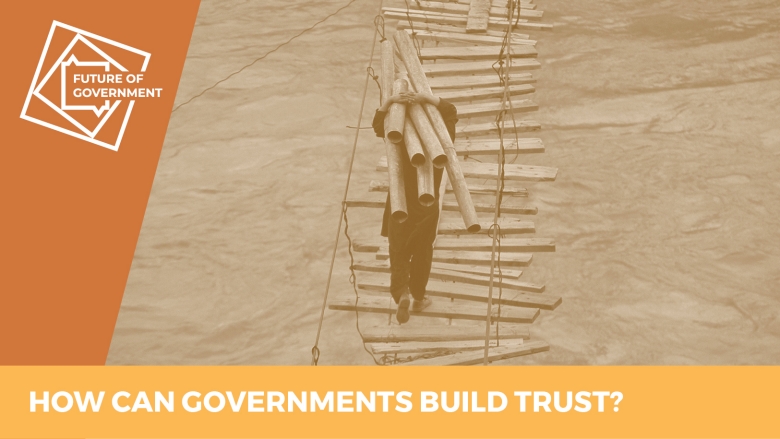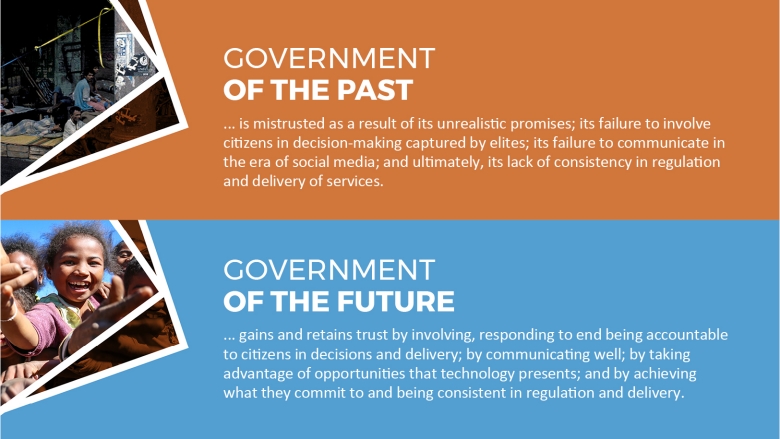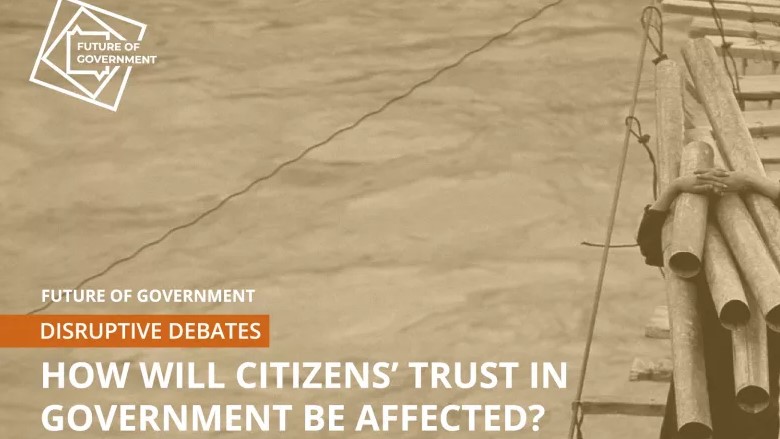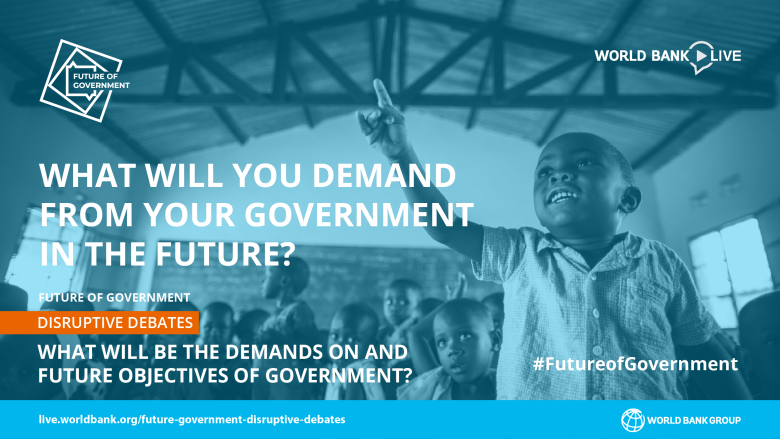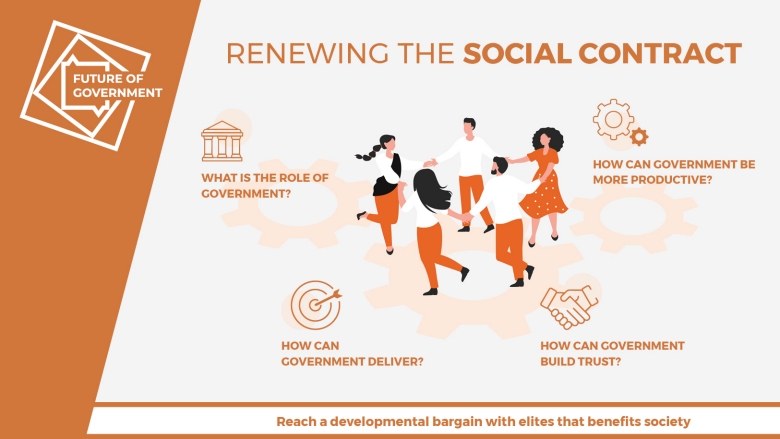
The process of reimagining government starts with the social contract between the government and citizens. Governments face changing and growing demands and expectations from their citizens. There is an opportunity to reexamine what governments do for their citizens and what citizens do for their governments.
For a renewed social contract to be sustainable and effective, it needs to be supported by an elite bargain. Power, authority, and resources that enable governments to function are typically concentrated in elites, not the broader citizenry. Therefore, the deals reached by elites are critical for governments to deliver on the social contract. For elite bargains to be developmental, it is critical that elites commit to outcomes that benefit the broader society and not just themselves.
There are four key questions that governments can ask themselves: What is the role of government? How can government deliver? How can government be more productive? How can government build trust?
The impact of the COVID-19 pandemic, the need to deliver climate change commitments, and the rise in conflicts have amplified the need for a more effective government from the central to the local level. Government agencies, including local authorities, and state-owned enterprises, are taking on new responsibilities for policy making, regulation, and service delivery; the pandemic, in particular, was a shock that required governments to respond with agility – moving services online, creating homebased work environments for civil servants and developing national and local policy in coordinated ways to minimize the health and loss of livelihoods impact.
The pandemic caused a health shock that also required governments to step up their regulation of society to introduce and enforce physical distancing as one of the leading remedies to prevent transmission, leading to a culture shock in many places where civil liberties and private freedoms were considered to be secondary to the need for collective action for the greater good. The economic shock that ensued also required a rapid expansion of state assistance, both for citizens and, in many cases, enterprises.
The pandemic also generated a revenue shock and has forced governments to spend, ramping up their debt. People around the world are feeling the impact of COVID-19, climate change, and conflicts, which adds further strain on the social contract.
The four tabs below set out how governments have answered these questions in the past, how Governments of the Future might go about doing so in consultation with their citizens, and the choices and conundrums they may face.
